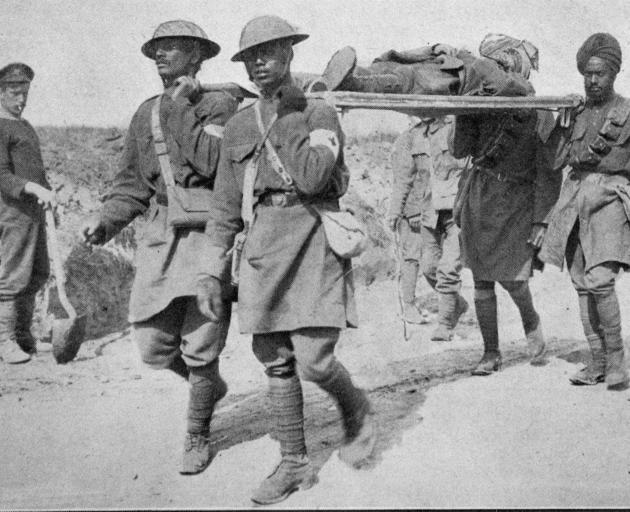
Private letters received in Auckland state that 10 vessels are being built as a commencement, seven of which are already launched, while some have been placed under charter. The fleet is to consist of vessels of 3000 tons carrying capacity, equipped with auxiliary steam power. Their chief purpose will be to bring lumber from the Canadian ports to Australasia, and carry return cargoes of coal from Newcastle and sugar from Fiji and elsewhere.
A paper was read before the Hawke's Bay division of the British Medical Association dealing with the decreasing birth-rate in Europe, and even in New Zealand, and the prevalence of abortion. The following extract is published by the Hawke's Bay Herald: - ``I believe,'' said the speaker, ``that 20 percent of all legitimate pregnancies in Hastings are being criminally interfered with. I do not refer to preventive measures, which are rife, but I do refer to the terribly prevalent and criminal habit of married women either interfering with themselves or being interfered with. The subject is grave, and calls for just as clear speaking as does the `social evil'. I have had ample opportunity of gauging the extent of the evil in my practice. I know of fatal cases resulting from abortioning in which one was powerless to bring it home to the criminal party, and in which both doctor and nursing home to which he took the case, got the blame for malpractice.''
Amongst the multitudinous collection of articles which were sold on the Wellington streets to swell the funds of the Returned Soldiers' Club was a quantity of tomatoes. There was nothing about them to attract particular notice, except that they were exceptionally healthy looking. But they have an intensely interesting past history. During the advance at Anzac, corporal H. J. H. Fear, D.C.M., son of Mr F. J. W. Fear, of Wellington, occupied a Turkish officer's dug-out from which the previous occupants had departed in some haste. The Turkish officer had evidently been in the middle of his meal, as Corporal Fear discovered a number of partially consumed tomatoes, the seeds of which he secured and sent to his father. Mr Fear, sen., immediately planted them, and the tomatoes sold in the streets on Friday were all grown from those few seeds from far-off Gallipoli. Corporal Fear has since been killed on the western front.
A Royal Commission has been set up by the Government to inquire into the question of the silting-up and periodical flooding of the Waipori and Taieri Rivers. Mr J. B. Thompson (Chief Land Drainage Engineer of the Lands and Survey Department) is chairman of the commission, and associated with him as commissioners are Mr C. R. Vickerman (ex-Superintendent Engineer of the Public Works Department), and Mr Ashley Hunter, C.E. (Auckland).
The order of reference of the commission is to inquire (a) Into the cause or causes of the silting-up and flooding of the Waipori and Taieri Rivers; (b) the best means of remedying the same; (c) the extent of damage done to adjacent lands; and (d) the allocation of the costs of remedial measures. The three commissioners are at present engaged in an exhaustive inspection of the present river-works. - ODT, 6.12.1916.












